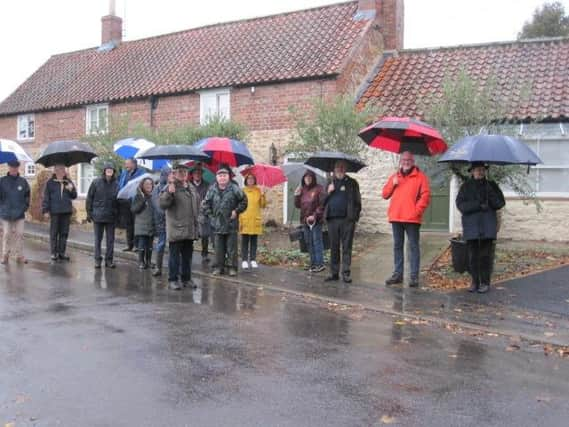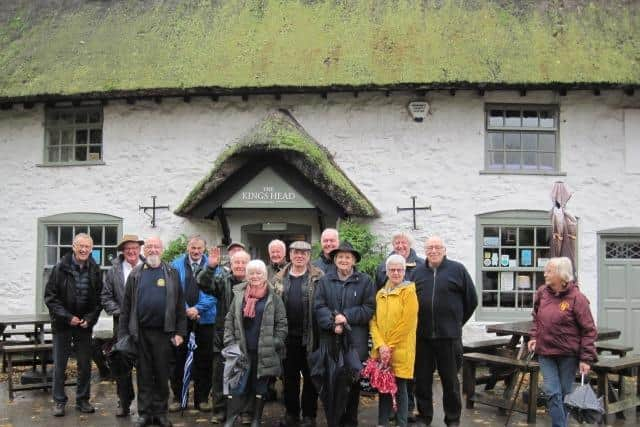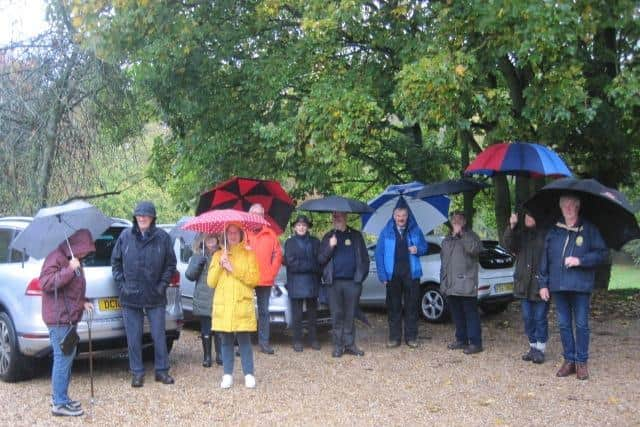Rotarians walk to help end polio


The sponsored walk took place in Tealby, with Rotarian Hugh Nott leading the way and giving some historical facts about the village as they walked.
It was a wet day, but nevertheless £260 was raised for Rotary Foundation’s End Polio Now campaign.
Advertisement
Hide AdAdvertisement
Hide AdEvery year on October 24, World Polio Day is observed to raise awareness of the importance of polio vaccination to protect every child from this devastating disease, and to celebrate the many parents, professionals and volunteers whose contributions make polio eradication achievable.
Polio, or poliomyelitis, is a paralysing and potentially deadly infectious disease that most commonly affects children under the age of five.
The virus spreads from person to person, typically through contaminated water. It can then attack the nervous system.
Rotary has been working to eradicate polio for more than 35 years and their goal of ridding the world of this disease is closer than ever.
Advertisement
Hide AdAdvertisement
Hide AdAs a founding partner of the Global Polio Eradication Initiative, they have reduced polio cases by 99.9 per cent since their first project to vaccinate children in the Philippines in 1979.


Rotary members have contributed more than $2.1 billion and countless volunteer hours to protect nearly 3 billion children in 122 countries from this paralyzing disease. Rotary’s advocacy efforts have played a role in decisions by governments to contribute more than $10 billion to the effort.
Today, polio remains endemic only in Afghanistan and Pakista, but it is crucial to continue working to keep other countries polio-free.
If all eradication efforts stopped , within 10 years, polio could paralyse as many as 200,000 children each year.
Advertisement
Hide AdAdvertisement
Hide AdMarket Rasen Rotary has, as usual, supported this day, by firstly selling bags of purple crocus corms, (50 for £5) and by watching a short Rotary video about the End Polio Now campaign and how Rotary Foundation has been involved.


The video stars Rtn John Box from Rotherham Rotary and Market Rasen’s own Rtn. Richard Lewis.
As mentioned previously, there are only very sparse appearances of the disease now, in Afghanistan and Pakistan where there have been difficulties in convincing some of the regions the whole exercise was not a big ‘Western’ plot to infect or sterilize the locals. However, progress does seem to be being made at last.
There have been records recently of the polio virus being found in sewage, as part of routine testing in London and New York.
Advertisement
Hide AdAdvertisement
Hide AdIn London, every child under the age of five has been given a booster vaccination as a precaution. These findings have been as a result of travellers who have received a live virus vaccination in their own country travelling to other parts of the world.
Since the introduction of the vaccination programme in the 1950s and the vaccination drive by Rotary started in 1979, there have been no more local infections, so we no longer see the full range of this devastating disease which can affect any part of the patient’s body, as it did to many people before the vaccine was available.
Rotary has benefited from the support of the Gates Foundation in later years, and this has match funded much of the money Rotary has collected.
The monitoring system that Rotary set up with the World Health Organisation to monitor spread of polio has subsequently been used very successfully to monitor the spread of diseases such as Covid and Ebola – especially in the less developed parts of the World.